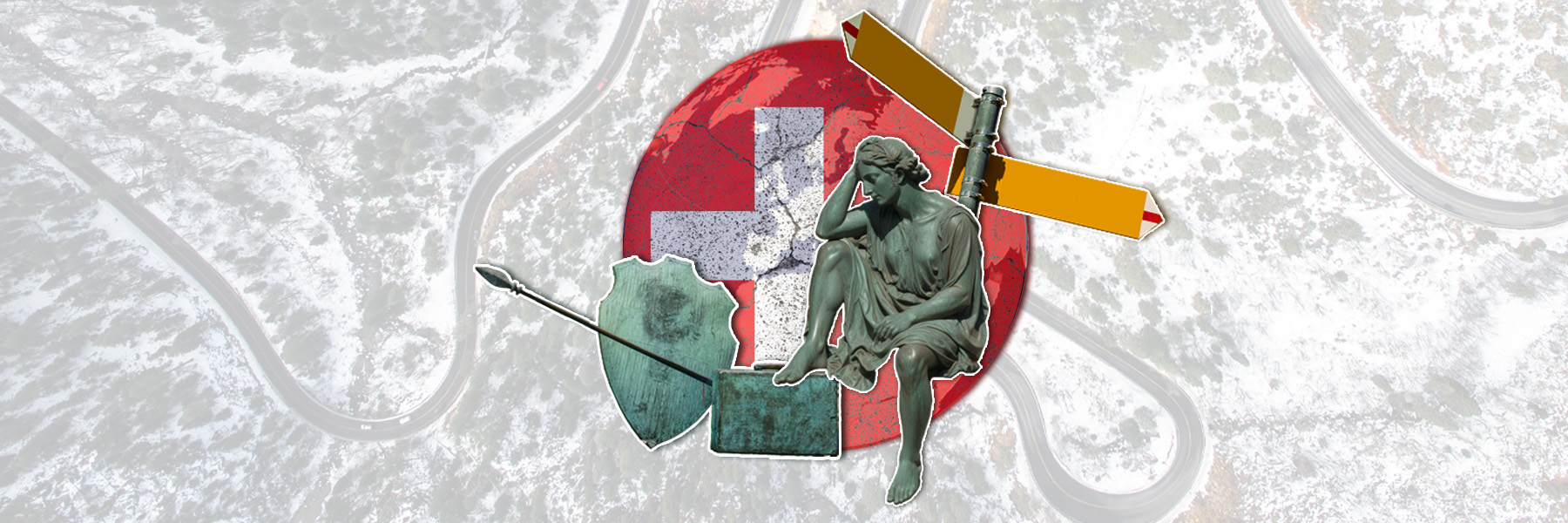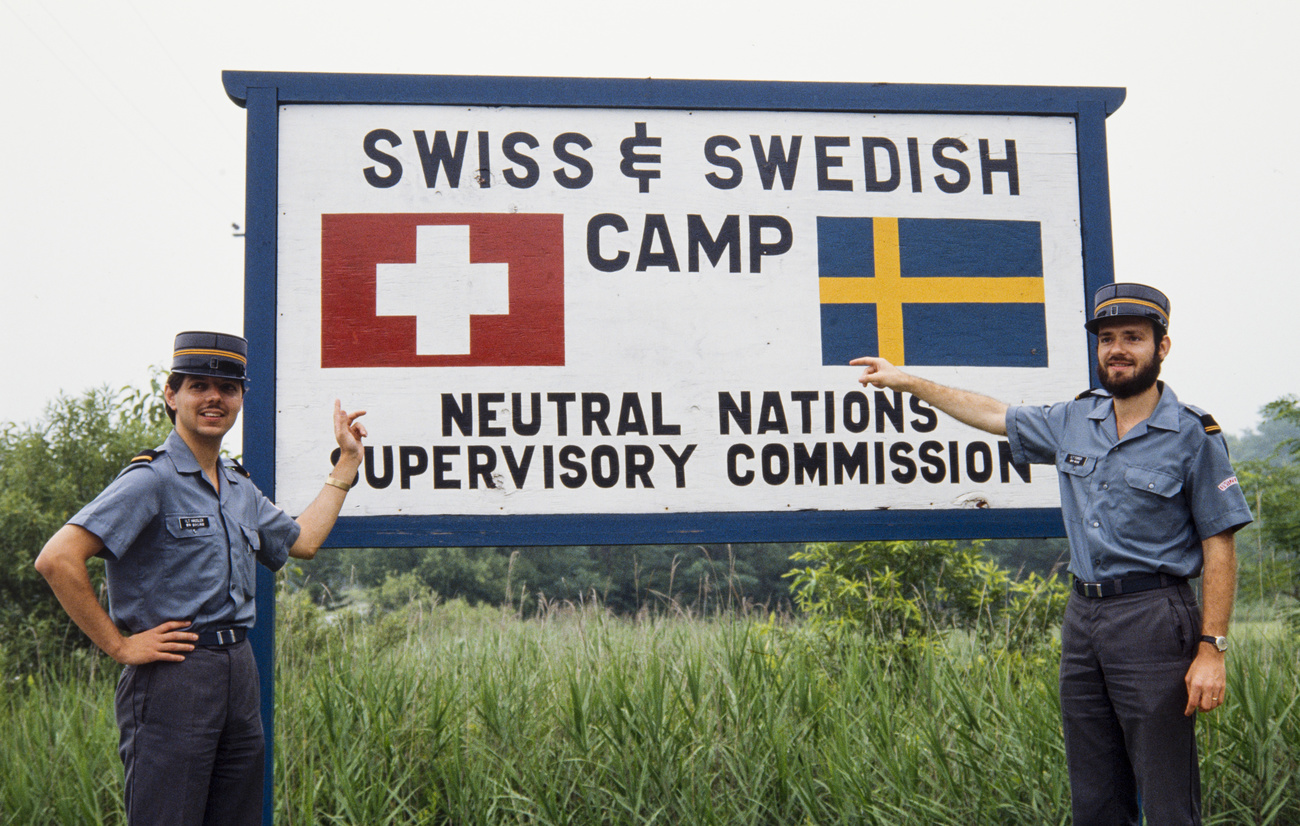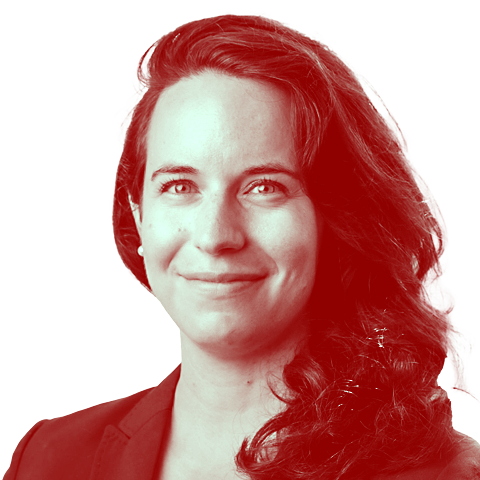
Does neutrality promote peace? A look at Switzerland and its good offices
Neutrality alone does not promote peace. Historically, it has been neither necessary nor sufficient for the success of good offices in armed conflicts, says historian Liliane Stadler.
In Switzerland, it’s often assumed that a country’s ability to provide so-called good offices is directly tied to its permanent neutrality – a view that plays a key role in the current debate over the neutrality initiative which will be voted on in 2026.
Russia’s invasion of Ukraine in 2022 reignited global debates about neutrality, prompting traditionally neutral nations to change course, with countries such as Finland and Sweden joining defence alliance NATO. Switzerland, however, remains widely perceived as the country with the longest and most steadfast tradition of neutrality.

More
How to be neutral in a multipolar world
But the war in Ukraine has also sparked an intense debate about neutrality in Switzerland. After the government joined EU sanctions against Russia, a committee representing the lobby group Pro Schweiz submitted the so-called neutrality initiative in November 2022. It calls for perpetual and armed neutrality to be enshrined in the constitution and prohibits Switzerland from joining any military or defence alliance that would limit its ability to participate in multilateral sanctions. At the same time, Switzerland should continue to emphasise its role as neutral mediator in armed conflicts, the initiative says.

More
What does the future hold for Swiss neutrality?
The term good offices comprises all actions a country, an international organisation or a non-state actor can offer as a neutral third party to help achieve a peaceful solution to armed conflicts. These can include hosting peace talks, acting as a protecting power or providing mediation services. Historically, dispute resolution and arbitration were also part of good offices.
Switzerland’s reputation as a trusted provider of good offices was not build through mediation, but through repeatedly acting as a protecting power in the 19th and 20th centuries. In this role, Switzerland managed diplomatic communication channels – sometimes for years – between hostile states that had severed their diplomatic ties. During the First World War, Switzerland held 36 protecting power mandates, and even more during the Second World War.
Following the Korean War between 1950 and 1953, Switzerland, together with Sweden, Czechoslovakia and Poland, took on a protecting power mandateExternal link at the internal Korean border – a role it still upholds. Even during the Cold War, Switzerland primarily focused on protecting power mandates and humanitarian aid.

More
Switzerland as a mediator – the successes and failures
Mixed track record
Switzerland has a mixed track record as mediator between warring parties. Globally, mediation only started to gain traction as a post-war phenomenon after 1945.
Switzerland made its first attempt during the 1956 Suez Crisis when it offered to host peace talks aimed at halting the invasion of Egypt by France and Britain. This proposal, however, was rejected by all parties to the conflict as well as by the United Nations, of which Switzerland was not a member at the time.
In 1961, Switzerland achieved a diplomatic success by actively supporting the peace talks between Algeria and France in the French town of Évian, which ultimately led to Algeria’s independence in 1962. Other mediation attempts, such as during the Iranian hostage crisis of 1979 and the Falklands conflict between Britain and Argentina in 1982, were rejected by the parties involved. In 1991, Switzerland mediated between the Afghan regime and the Mujahideen resistance movement following the withdrawal of the Soviet Union. However, the regime collapsed after Afghan President Mohammed Najibullah stepped down in 1992.
Historians consider the 1990s as a period when Switzerland’s good offices as mediator really took off. At the height of the Gulf War in 1991, Switzerland hosted a summit conference between US Secretary of State James Baker and his Iraqi counterpart Tariq Aziz. Former Swiss diplomat Edouard Brunner was appointed as the UN special envoy to the Middle East, while his successor, Klaus Jacobi, played a key role in the peace talks on the Balkans between Serbian President Slobodan Milosevic and his Croatian counterpart Franjo Tudjman.
Between 2000 and 2018, Switzerland was officially involved in meditation efforts in about 20 conflicts including those in Sudan, Nepal, Syria and Colombia. It also hosted high-profile negotiations on Iran’s nuclear programme in Lausanne between 2008 and 2015. As chair of the Organization for Security and Co-operation in Europe (OSCE), Switzerland led the Trilateral Contact Group on Ukraine in 2014 and has since played a key role in promoting peaceful solutions to the conflicts in Tunisia, Myanmar, Zimbabwe and Mozambique. However, the success rate of these good offices has also been mixed.
More
Other actors involved
This track record is not necessarily a reflection of Switzerland’s diplomatic efforts, it’s simply that many of these conflicts are highly complex. What’s more, Switzerland is no longer the only provider of good offices. International organisations, other neutral countries and an increasing number of non-neutral actors are actively engaged in mediation efforts around the world.
Switzerland did host a summit between former US President Joe Biden and Russian President Vladimir Putin, but talks on the US withdrawal from Afghanistan that same year took place in Qatar. In 2022 and 2024, Switzerland organised two conferences on Russia’s war in Ukraine, yet the actual negotiations between Russia and Ukraine have so far taken place in Turkey and Saudi Arabia. Under President Donald Trump, the US briefly pushed for a peaceful solution, while it was China that brokered the restoration of diplomatic relations between Iran and Saudi Arabia in 2023.
All in all, it’s relatively difficult to draw a clear pattern or definite causal link between Switzerland’s neutrality and its good offices based on history alone.
Historically, neutrality has rarely been a decisive factor in awarding mediation mandates or ensuring the success of peace talks. Switzerland’s good offices are internationally valued, and the experience gained by the Swiss foreign ministry in this field is considerable. This speaks for Switzerland’s continued engagement in mediation. However, if the Swiss people were to vote in favour of the neutrality initiative, it would likely be driven more by tradition and national identity than by the widely held belief that neutrality alone promotes peace.
The neutrality initiative, put forth by an association known as Pro Switzerland, calls for a strict interpretation of Swiss neutrality to be incorporated in the federal constitution. Currently, the government and parliament are responsible for neutrality policy, which they can adapt depending on the geopolitical circumstances of the day. If the popular initiative is adopted by the Swiss population in 2026, the government and parliament would lose this flexibility.
Edited by Benjamin von Wyl. Adapted from German by Billi Bierling/ts
The views expressed by the author do not necessarily reflect those of Swissinfo.

More
Our weekly newsletter on geopolitics

In compliance with the JTI standards
More: SWI swissinfo.ch certified by the Journalism Trust Initiative

































You can find an overview of ongoing debates with our journalists here . Please join us!
If you want to start a conversation about a topic raised in this article or want to report factual errors, email us at english@swissinfo.ch.